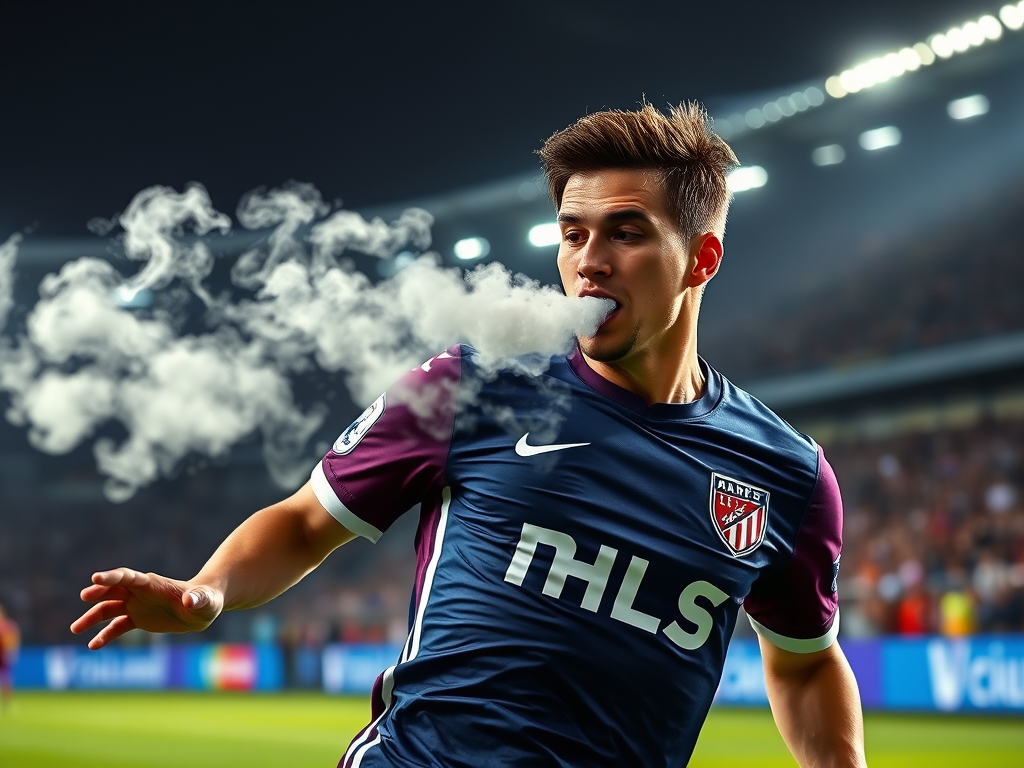Player Performances and Vaping: Can They Be Linked?

Athlete performance is influenced by multiple factors—training, nutrition, mental health, and recovery techniques. Over the years, unconventional relaxation and recovery methods have emerged, including vaping. While vaping is not directly linked to improving athletic performance, it has become a lifestyle choice for many athletes and fans alike. In this article, we explore the possible connections between vaping and athlete recovery, stress management, and how fans engage with player habits.
Vaping and Athlete Recovery
Athletes push their bodies to the limit, requiring proper recovery to maintain peak performance. Recovery techniques range from traditional practices like ice baths and massages to modern approaches, including CBD-infused vaping for muscle relaxation. While research on vaping and athletic recovery is still developing, here are some ways vaping is perceived in this context:
1. Managing Stress and Anxiety Post-Game
Competing at an elite level comes with intense pressure. Many athletes turn to relaxation techniques after a game, and for some, vaping has become part of that process. Certain vape products contain ingredients like CBD, which is widely used for its potential calming effects. While traditional smoking is known to hinder lung capacity, some claim that nicotine-free vaping offers relaxation without the same respiratory drawbacks.
2. Potential Role of CBD and Herbal Vapes in Recovery
CBD vapes, in particular, have gained popularity among athletes because of their supposed anti-inflammatory properties. Some claim CBD aids in muscle recovery and helps manage minor aches and pains. Unlike nicotine-based vapes, CBD vapes do not contain addictive substances, making them a potentially appealing alternative for post-game relaxation.
3. The Controversy Around Vaping and Lung Function
A major concern surrounding vaping and athletics is lung health. While vaping is generally considered less harmful than traditional smoking, some argue that inhaling vaporized substances can still impact endurance-based performance. Studies are ongoing, but the consensus among sports professionals is that athletes should approach vaping cautiously, especially if their sport relies heavily on cardiovascular fitness.
Vaping as a Relaxation Technique for Players
Athletes don’t just train their bodies; they also need to take care of their mental health. Finding ways to relax off the court or field is essential to maintaining long-term success. Here’s how vaping has been linked to player downtime:
1. A Social and Recreational Habit
For some athletes, vaping is not about stress relief or recovery—it’s simply a recreational activity. Just like social drinking or gaming, some athletes enjoy vaping casually, whether at events, parties, or in private. While many professional leagues have policies against nicotine or THC-based substances, herbal or CBD vapes often exist in a gray area, making them an option for players looking to unwind legally.
2. Influence of Sponsorships and Brand Deals
The vaping industry has actively sought brand partnerships with athletes and influencers. While some leagues prohibit endorsements of vaping products, others allow CBD-based sponsorships, which has led to a rise in athletes being associated with these products. This contributes to the perception of vaping as part of a modern athlete’s lifestyle rather than just a vice.
3. Does Vaping Impact Athletic Performance?
The impact of vaping on athletic performance is still debated. Some argue that nicotine-based vaping could hinder cardiovascular endurance, while others claim that nicotine-free alternatives and CBD-infused options can provide relaxation benefits without affecting lung capacity. Regardless, professional athletes must comply with league regulations, meaning their choices are often more about personal preference than performance enhancement.
How Fans Connect with Players on Social Media
With social media dominating modern culture, fans are more connected to athletes than ever before. Players often share glimpses of their personal lives on platforms like Instagram, Twitter, and TikTok, influencing trends and behaviors—including vaping habits.
1. Players as Lifestyle Influencers
Athletes are not just competitors; they are cultural icons. When a high-profile player is seen vaping—whether in a casual setting or promoting a CBD brand—it can influence younger audiences and fans who look up to them. While this influence is not always intentional, it reinforces vaping as part of certain lifestyle trends.
2. Fan Emulation and the Power of Trends
Fans often emulate the habits of their favorite athletes, from workout routines to diet choices. If a player publicly supports a CBD vape for relaxation, some fans may follow suit, believing it offers similar benefits in their own lives. Social media further amplifies this trend, with fans engaging in discussions and experimenting with vaping products endorsed or used by athletes.
3. The Debate Over Athlete Responsibility
While athletes have the right to personal choices, their actions are always under public scrutiny. Some critics argue that when a player is seen vaping—whether casually or as part of an endorsement—it can send mixed messages to younger fans. Others believe that athletes should be free to make lifestyle choices without being seen as role models for every personal habit.
Final Thoughts: The Subtle Connection Between Vaping and Player Performance
While vaping is not directly linked to enhancing athletic performance, it has become part of the recovery and relaxation routines for some players. Whether through CBD vapes for muscle recovery or as a casual habit, vaping is embedded in the modern sports landscape.
Fans, too, play a role in shaping this connection, as they look to their favorite players for lifestyle inspiration. The growing presence of CBD and wellness-focused vaping in athlete culture suggests that, while controversial, vaping continues to evolve as part of broader discussions on relaxation, performance, and personal choice.
At the end of the day, the connection between player performance and vaping is less about science and more about lifestyle. As the debate continues, one thing remains clear—athletes, like everyone else, seek ways to manage stress, and vaping is just one of many tools in that journey.